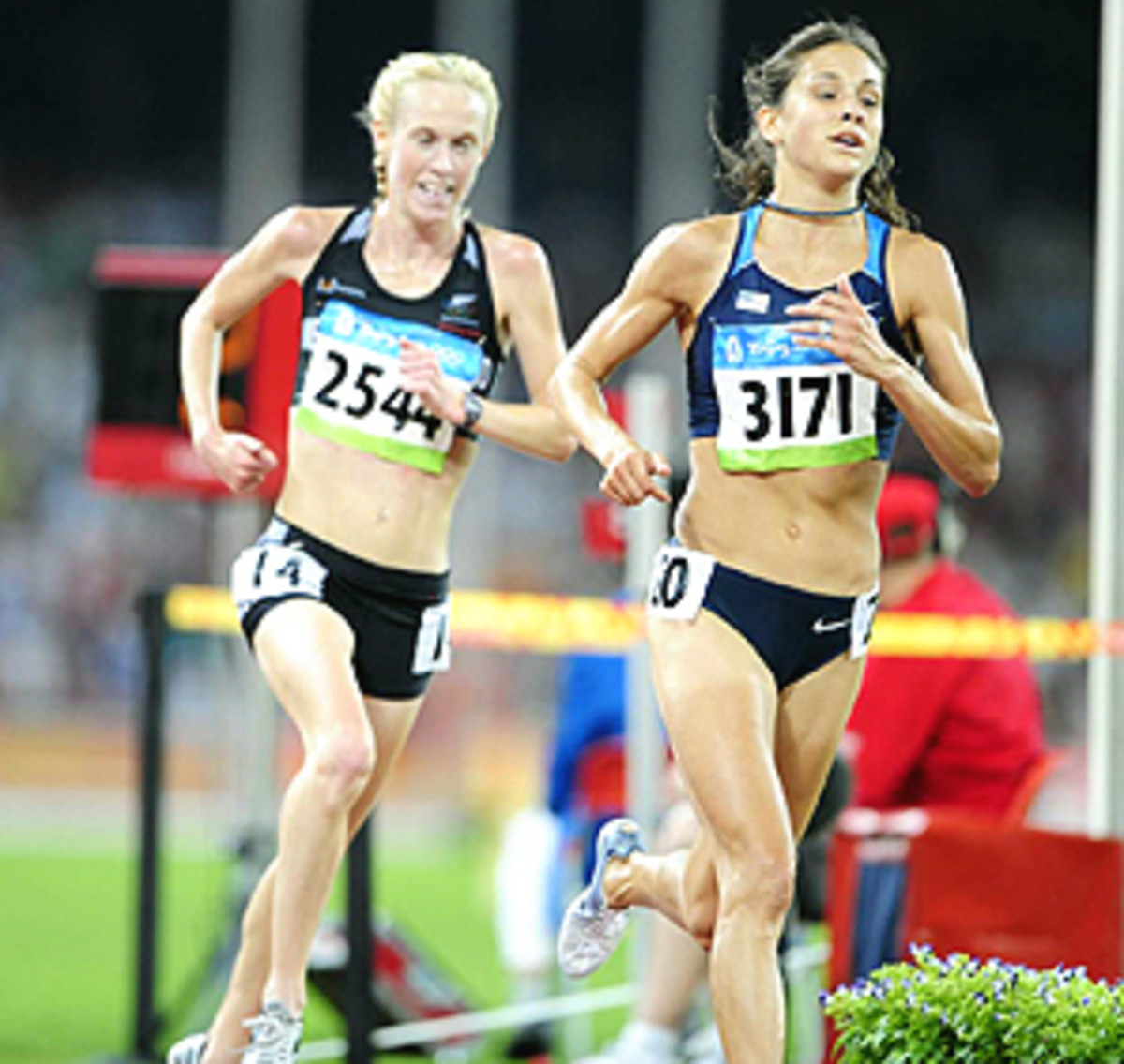Goucher's moment of weakness
BEIJING -- Kara Goucher put on a strong face for the media after finishing 10th in the 10,000. But her words were devastating. She admitted that, 13 laps into the race, when the burn started creeping over her legs, she let the thought of her next race, the 5000 on Tuesday, creep into her mind: I've got another shot, she thought, so why take any more pain? And then she drifted out of contention.
"It wasn't a smart decision," Goucher said afterward. "It was just weakness. I gave myself an out ... It's something I'll be thinking about for a long time." The only thing keeping her from crying, she said, was knowing that compatriot Shalane Flanagan had run an American record -- 30:22.22 -- and taken the bronze medal.
As silly as this sounds, all I could think about was how great it was that Goucher was crestfallen about a 10th-place finish, in 30:55.16, in the Olympic final, and that it happened because she was thinking about the other race she'd come to run.
After Lynn Jennings took bronze in the 10K in Barcelona in 1992, the U.S. went through a dark age with respect to women's distance running. No U.S. women were in the Olympic 10,000 in 1996 and 2000, and in 2004, Elva Dryer, the top U.S. finisher in the 10,000-meters ran valiantly, but was never in contention, and finished 19th, in 32:18.16, one minute and 23 seconds slower than Goucher. It wasn't long ago that one of the most popular topics of debate on track and field message boards was whether Americans could ever compete with Africans in distance events.
So while she was right to be disappointed, it speaks volumes about how far U.S. women distance runners have come that Goucher, who won the first ever American distance medal at a World Championships when she took bronze last year in Osaka, was not content to just show up and be an Olympian.
But she had to be content with a personal best, right? "Yeah, it was a PR, but my PR was weak," she said. Oh, ok.
Still, 10th in the world is nothing to sneeze at. What were her expectations? "Well, I'm crazy," she said, "I thought I could win." But the heartening nugget is that she wasn't crazy at all to think she could win. It's that kind of "crazy" that has lifted U.S. distance running back to competitiveness on the highest level. If that's crazy, then would that we could all share in Kara's crazy pills.
But not yet. She needs them for the 5,000. "You'll see a different animal on Tuesday," she said. Different animals are precisely what we're seeing right now in the United States' distance runners.






